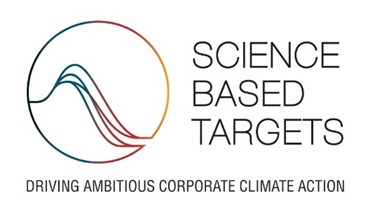Sustainability
- TOP_EN
- Sustainability
- SBT Certification
Obtained SBT certification for greenhouse gas reduction targets
September 11, 2025
Hosiden Corporation (President and CEO: Takeshi Furuhashi) greenhouse gas (GHG) emissions reduction targets for 2030 have been recognized as being based on scientific evidence and aimed at limiting global temperature rise to 1.5°C above pre-industrial levels, in accordance with the Paris Agreement, and have been certified by the international initiative Science Based Targets initiative (SBTi).

SBTi-certified greenhouse gas emissions reduction targets
●Scope 1 and 2 GHG emissions 42% by FY2030 from a FY2023 base year.
●Scope 3 GHG emissions 25% by FY2030 from a FY2023 base year.
In recent years, abnormal weather and large-scale disasters caused by global warming have occurred all over the world, making global warming countermeasures a major social issue. In addition, many companies are working on global warming countermeasures with 2030 as the target year, and it is predicted that the demand for decarbonization will accelerate even further in the future. As a company that is expanding its business globally, Hosiden also recognizes that the role that companies should play is to further promote decarbonization, and has taken the opportunity of obtaining SBT certification to promote energy conservation and the introduction of renewable energy in domestic and overseas group companies. Specifically, starting in fiscal year 2025, we will switch to purchasing 100% renewable energy-derived electricity in Japan, with the exception of some sales bases, and we expect to reduce CO2 emissions by approximately 4,469 t-CO2 per year (15.6% compared to the base year). Overseas, we also plan to install an on-site PPA on the roof of our new office building (Building No. 8) at our Vietnam factory starting in fiscal year 2026, contributing to an annual reduction of approximately 700 t-CO2. In this way, Hosiden will ambitiously work towards decarbonization in order to achieve SBT-level targets.
What's SBTi
The Science Based Targets initiative (SBTi) is an international organization jointly established by CDP, the United Nations Global Compact, the World Resources Institute (WRI), and the World Wide Fund for Nature (WWF). It is an international initiative that calls for the setting and implementation of science-based targets that are consistent with greenhouse gas reduction scenarios aimed at achieving the goals of the Paris Agreement.

